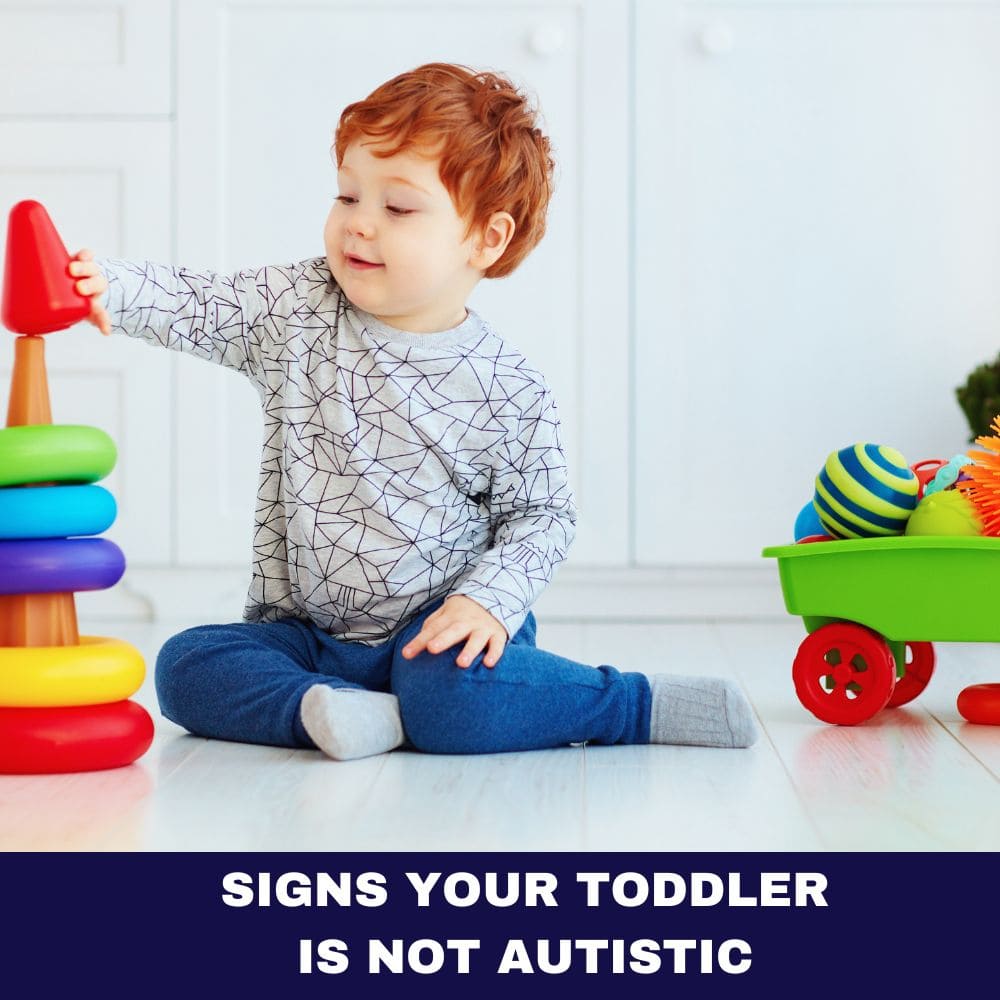As a parent of two young kids, I’ve certainly experienced my fair share of challenges getting them to wind down and fall asleep. But it wasn’t until my second child that I first heard the term “FOMO baby.” When my pediatrician suggested it as a reason for my son’s resistance to naps and bedtime, I had no idea What is a FOMO Baby!
If you’re in the same boat and have a baby that fights sleep or gets overly distraught when separated from you, keep reading. Understanding FOMO tendencies in infants can help you support their development and get better rest for the whole family.
What Exactly is a FOMO Baby?
FOMO stands for “Fear Of Missing Out,” and it’s something I think we can all relate to now and then! FOMO describes kids (or adults) who have intense emotional reactions to being separated from the action. Babies with FOMO want to soak up every sight, sound, and bit of stimulation around them 24/7. Who can blame them when the world is so new and exciting!
But this extreme resistance to feeling “left out” makes it very difficult for FOMO infants to wind down for naps or at night. It leaves everyone exhausted and frustrated. Trust me, I’ve been there after countless failed attempts to get my son to sleep!
Some key signs of baby FOMO that may indicate your child has FOMO tendencies include:
- Excessive crying when not involved the center of attention
- An inability to play independently or self-soothe to sleep
- Clinging behaviors and acting distraught when you leave
- Constant need for interaction and stimulation
If this sounds familiar, don’t worry! While frustrating, these behaviors are common at certain ages as babies learn to self-regulate. There are also plenty of ways parents can guide them through it. Let’s break down some of root causes, impacts, and baby FOMO treatment tips.

What Factors Can Contribute to FOMO in Infants?
First, know that FOMO tendencies aren’t necessarily a bad thing. In fact, it’s often a sign your little one is intrigued about their surroundings and taking in information rapidly during a key developmental window. However, some variables make the behaviors more likely or intense:
Parenting Style and Overstimulation
It’s only natural as parents that we want to show our babies the world and make them happy 24/7. However, some parenting styles can inadvertently encourage FOMO. For example, constantly showing them new sights/sounds, letting them dictate activities based on tantrums, or not enforcing independent play.
Personality and Temperament
The simple fact is that some babies are just more reactive and intense in their emotions. My second child came out very alert and opinionated! It’s just in his spirited nature to get upset when things don’t go his preferred way.
Changing Developmental Stages
Major leaps in development around vision, mobility, separation anxiety and more mean your infant is suddenly much more aware of the exciting activity happening without them. This fuels the FOMO fire!
Sensory Issues
Finally, conditions like reflux, allergies or overstimulation from noise/lights makes sleeping uncomfortable. Pair that with FOMO and no wonder your baby fights bedtime!
If you notice intense FOMO along with other issues like sensory sensitivity or delays in skills, do bring it up with your pediatrician. It could indicate an underlying disorder like autism needing baby care and treatment. But often, it really does come down to phase combined with personality.
The Impact of Unresolved FOMO Behaviors
I definitely experienced firsthand the domino effect my son’s intense FOMO behaviors had on our homelife once his baby brother arrived. When FOMO is left unaddressed, it can lead to:
- Parenting Stress and Fatigue
- Greater risk of SIDS or accidents if sleep deprived
- Hindered development of self-regulation skills
- Poor behavior and meltdowns from being overtired
- Difficulty transitioning between stimulating activities
The more worn down and stressed we became from the constant sleep battles, the harder it was stay patient and react appropriately. It was a rough period until we figured out some better baby FOMO treatment strategies.
| Age Range | Common Signs of FOMO |
|---|---|
| 0-3 months | Difficulty soothing themselves to sleep, frequent waking, resisting naps, crying when missing activity |
| 4-6 months | Separation anxiety spikes, extreme fussiness when not held/interacted with constantly, inability to play alone |
| 7-12 months | Night waking increases, heightened reactions to parents leaving the room/sight, demanding to be part of all family activities |
| 13-24 months | Sleep regressions tied to developmental leaps, engaging in dangerous climbing/risky behaviors to join in with older siblings or children, continued distress when unable to access stimulation |

Tips for Managing FOMO Baby Behaviors
If reading this makes you feel seen, take heart! While often challenging, FOMO tendencies can be managed with compassionate limits and by building your baby’s self-regulation skills over time. Some proactive parenting tips include:
Create Structure and Predictability
Having a calming bedtime routine with predictable steps (bath, pajamas, stories) helps signal sleep is coming. Be consistent even if they resist sometimes.
Set Limits with Empathy
Keep removing stimulation and firmly yet gently returning them to their crib/room. Stay calm and acknowledge their feelings. “You’re so mad you have to go to bed! But it’s sleepy time.”
Encourage Independent Play
Set designated times each day for them to entertain themselves while you simply observe. Start very short if needed (even 2-3 minutes), praise success, and gradually increase.
Address the Sleep Environment
Using blackout curtains, white noise for baby sleep, and ensuring the room is cool/comfy can make sleep more appealing. Swaddle them as well if under 6 months.
Support Healthy Sleep Associations
Be cautious of relying solely on nursing, rocking or similar to sleep as it becomes their “requirement” to nod off later on.
Model Self-Care as a Parent
Focus on stress management, asking your partner/friends for support, or speaking to your pediatrician if needed. Get any physical or mental health issues treated, as your baby picks up on emotions.
See a Sleep Consultant or Therapist If Needed
For lasting night waking or extreme distress over separation, a professional can assess the issues fueling your baby’s sleep struggles and help form a plan.

Specific Strategies to Help FOMO Babies Self-Soothe
As parents trying to help our FOMO babies build self-soothing skills, we have to get creative sometimes with our tactics and techniques. While establishing structure through routines and limits is key, you can also actively work on activities to extend your baby’s ability to focus independently and regulate emotions. Patience is crucial — start very small and offer lots of encouragement! Here are some ideas:
Teach Focused Attention
Take advantage of times your baby shows interest in a toy or book. Sit next to them and narrate details, point things out, and prompt them to explore the item to fully engage their attention. If they start to veer off, gently redirect their focus back to the activity. Start with just seconds of directed attention and distraction prevention, praising success. Over time build up incrementally to 5-10 continuous minutes of them examining a toy or book before switching.
Encourage Exploring Toys & Environment
Babies learn by interacting with their surroundings. Rotate toys in and out so each regain novelty. Let your baby freely manipulate toys such as soft blocks and rattles to examine from all angles and discover capabilities. Show interest and describe their play. Promote independent floor play in safe baby proofed areas without constant interaction. Notice and positively reinforce when they entertain themselves even for brief moments before intervening with your attention and assistance.
Model Calm Emotion Regulation
Parental reactions provide powerful modeling on how to work through strong feelings. Verbally acknowledge and validate when your baby gets upset or frustrated such as crying when you walk away. Demonstrate taking deep breaths to calm yourself, and narrate working through the emotion. “You are so sad. It’s hard when I leave. Let’s take some deep breaths together to feel better.” Over time, they internalize self-regulation skills from your coaching.
Use Transitional Objects
Around 6-9 months when separation anxiety peaks, introduce a special stuffed animal or blanket and connect it to you. Have it with you often so your scent attaches, and make it a consistent part of bedtime routines. Tell your baby this lovey will keep you close when apart. The familiar, comforting object builds attachment and helps them self-soothe when missing you.
Start Journaling Your Progress!
It’s hard to be objective when you’re in the thick of challenging FOMO behaviors. Logging duration of independent play, separation tolerance, and sleep stretches makes patterns more evident. Note small milestones like playing solo for 30-60 seconds, decrease in crying jags, or extra 10 minutes before calling for you at bedtime. Builds add up week to week!

When to Seek Outside Support
Implementing management techniques and self-regulation skills building takes time and consistency. But even dedicated parents can’t always resolve extreme FOMO behaviors on their own. If you’ve made little headway after months or observe other concerning signs, seeking outside expertise is wise. Here are some indicators it may be time for assessment and help:
Signs It’s Time for Professional Input
- No improvement after consistently applying strategies for 3-4 months
- Increased separation anxiety or sleep associations past 10-11 months
- Lasting sleep problems still interfering by 6 months old
- Not reaching physical, social, emotional milestones typical for babies in their age range
Types of Specialists Who Can Help
- Pediatrician: Thorough checkup to rule out illness or conditions exacerbating FOMO like acid reflux, ear infections, etc. Also best resource if you have general concerns about development.
- Child Psychologist or Therapist: Assess social-emotional health as related to building attachment relationships and self-regulation skills. Help formulate plan involving parents.
- Occupational Therapist (OT): Work on sensory integration issues interfering with sleep or ability to transition between stimulating tasks. Support regulation.
- Sleep Consultant: Customize plan for stubborn sleep associations, night wakings, schedule discrepancies disrupting bedtime.
Early Intervention is Key!
If your parental instinct is telling you something more is going on, don’t delay getting your child evaluated by professionals. Early diagnosis and treatment always make addressing developmental delays or health conditions easier in babies rather than waiting until older.
| Specialist | Approach | Treatment Goals |
|---|---|---|
| Pediatrician | Medical evaluation | Rule out conditions like reflux; Refer to therapists; Support parents with advice |
| Child Psychologist | Social-emotional and attachment-based developmental assessment | Identify delays, customize treatment plan involving parents to improve regulation skills |
| Occupational Therapist | Sensory processing and integration evaluation | Improve ability to transition between stimulating tasks without excessive dysregulation |
| Sleep Consultant | Customized sleep plans | Resolve sleep crutches, night waking at later ages |
Takeaways on FOMO Tendencies in Babies
Dealing with an infant who fights sleep and melts down when not the constant center of attention is frustrating and exhausting for the whole family. But have hope! Using an empathetic, structured approach to set limits while also building up their ability to self-soothe and play independently overtime truly does help.
And remember—while every baby develops on their own schedule, these behaviors tend to peak around 4 months when FOMO fuels their passionate resistance. But this too shall pass as they learn new skills and their interests evolve! Having patience, getting any needed support, and taking care of yourself along the journey will make all the difference.
So now that you know what a fomo baby is and the typical signs, contributing factors, impacts and management tips, tell me — does it sound familiar at all? If you have your own stories of dealing with an infant with FOMO behaviors, share them below! I could use the solidarity too that we’re all in this together.
FAQ – What is a FOMO Baby ?
What are some common signs of FOMO in babies?
Some common signs include extreme distress when not the center of attention, an inability to play alone, resistance and crying related to sleep, separation anxiety when away from parents, and a constant need for interaction and stimulation from others. Clinging behaviors are also very common.
What causes FOMO behaviors in infants?
Contributing factors can include parenting that unintentionally reinforces the intense need to be involved 24/7, underlying baby temperament and sensitive personality traits, major developmental leaps that suddenly make them more aware of activity without them, and conditions like reflux or overstimulation that prevent rest.
How does FOMO impact babies and families?
If left unaddressed for long periods, FOMO sleep associations, separation anxiety, and dysregulation can lead to parental burnout and fatigue, safety issues if sleep deprived, delays in building emotion regulation skills, increased meltdowns, and problems transitioning between stimulating tasks which frustrates babies more.
What are some ways to help a FOMO baby self-soothe?
Hands-on techniques like distraction prevention with toys for attention span, verbal emotion coaching, transitional objects with parental scent when apart, allowing independent floor play in a safe area, praising any moments of solitary entertainment, and keeping logs to track subtle progress over time.
When should you seek outside help for extreme FOMO?












